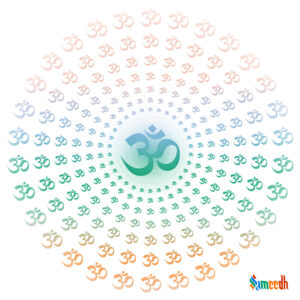Vedanta is a school of Hindu philosophy that is based on the teachings of the Upanishads, which are a collection of ancient Indian scriptures. The term “Vedanta” is a combination of two Sanskrit words: “Veda,” which means knowledge, and “anta,” which means end or conclusion. Thus, Vedanta can be interpreted as the “end” or “culmination” of Vedic wisdom.

Vedanta is a school of Hindu philosophy that is based on the teachings of the Upanishads, which are a collection of ancient Indian scriptures. The word “Vedanta” literally means “end of the Vedas,” and it is so named because it represents the culmination or highest teachings of the Vedas. Vedanta is a term that encompasses a diverse set of philosophical, religious, and spiritual traditions originating in ancient India.
Key concepts in Vedanta include:
- Brahman: The ultimate reality or cosmic consciousness. Brahman is considered to be the source and essence of everything in the universe.
- Atman: The individual soul or self. Vedanta teaches that Atman is not separate from Brahman, but rather, it is of the same essence. Realizing this unity between Atman and Brahman is the ultimate goal of spiritual practice.
- Maya: The principle of illusion or the power of illusion that veils the true nature of reality. According to Vedanta, Maya is responsible for creating the sense of duality and separation in the world.
- Moksh: Liberation or freedom from the cycle of birth and death (samsar). Attaining Moksh is the ultimate aim of human life according to Vedanta, and it is achieved through self-realization and understanding the true nature of reality.
Vedanta has had a profound influence not only on Hinduism but also on various other religious and philosophical traditions both within India and beyond. Its teachings have inspired countless spiritual seekers and continue to be studied and practiced by millions of people around the world.
Vedanta teaches that there are three main paths to spiritual realization:
- karma yoga: which is the path of selfless action.
- bhakti yoga: which is the path of devotion.
- jnana yoga: which is the path of knowledge.
Each path is suited to different types of people and personalities, and all three are considered valid and effective means of attaining spiritual liberation. Vedanta has had a significant impact on Hindu philosophy, religion, and culture, and its teachings have also influenced many other spiritual traditions around the world. Some of the most famous teachers and proponents of Vedanta include Adi Shankara, Ramana Maharshi, and Swami Vivekanand.
Three essential works of Vedanta that are widely studied and revered are:
- Upanishads: The Upanishads are a collection of ancient philosophical texts that form the foundation of Vedanta. These texts explore profound metaphysical and spiritual concepts, including the nature of the self (Atman), the relationship between the individual soul and the universal consciousness (Brahman), and the paths to spiritual liberation (moksha). Some of the key Upanishads in the Vedanta tradition include the Chandogya Upanishad, Brihadaranyak Upanishad, and Mandukya Upanishad.
- Bhagavad Gita: The Bhagavad Gita, often referred to simply as the Gita, is a sacred Hindu scripture that is part of the Indian epic Mahabharat. It consists of a dialogue between Prince Arjun and the god Krushna, who serves as his charioteer. In the Gita, Krushna imparts spiritual wisdom and guidance to Arjun on various philosophical and ethical dilemmas, including duty (dharm), righteousness, devotion, and the nature of the self. The Bhagavad Gita is highly regarded in the Vedanta tradition for its synthesis of different paths to spiritual realization and its emphasis on selfless action and devotion.
- Brahma Sutras: Also known as the Vedanta Sutras or Uttara Mimamsa, the Brahma Sutras are a systematic exposition of Vedantic philosophy attributed to the sage Vyasa. Comprising aphoristic statements (sutras), the Brahma Sutras address key philosophical concepts discussed in the Upanishads and provide a framework for understanding the nature of reality, the relationship between the individual soul and Brahman, and the means to attain liberation. The Brahma Sutras are highly revered in the Vedanta tradition and have been commented upon by numerous scholars and philosophers throughout history, including Adi Shankaracharya, Ramanuja, and Madhvacharya.
There are several schools of Vedanta, each with its own interpretations and philosophical nuances. Some of the prominent ones include Advait Vedanta (non-dualistic), Dvait Vedanta (dualistic), and Vishishtadvaita Vedanta (qualified non-dualism). These schools offer different perspectives on the relationship between the individual soul, the ultimate reality (Brahman), and the world.
Vedanta has had a profound influence not only on Hinduism but also on various other religious and philosophical traditions both within India and beyond. Its teachings have inspired countless spiritual seekers and continue to be studied and practiced by millions of people around the world.